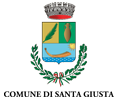Discover Romanesque: The time of Romanesque
Years 1051-1100
The climate of industriousness and concreteness originated throughout the century had encouraged a political and institutional reorganization under the sign of autonomy: free Communes were born in central-northern Italy, while in Sardinia, four autonomous local kingdoms, called Giudicati, were by then formed. In southern Italy, the Normans put an end to the Byzantine domination, setting Sicily free from the Saracens.
Religious environments were invested by a similar innovating turmoil, attempting to re-establish the clergy’s moral integrity, while enhancing the pope’s role through the removal of any lay interference. It was the Gregorian Reform, resulting in the so-called ‘fight for investitures’, a harsh conflict between papacy and empire over the appointment of bishops and the modes to elect the Pope himself. The main characters were the German emperor Henry IV and Pope Gregory VII (1073-1085), supported by Matilda of Tuscany.
In such context, the First Crusade was called by Pope Urban II in 1095: a sort of ‘armed pilgrimage’ to Jerusalem, which actually led to the conquest of the city.
1058: Attestation of Mariano-Salusio de Lacon Gunale as the first ‘Judge’ whose name is mentioned in sources.
1061: Anselmo da Baggio, bishop of Lucca, became Pope under the name of Alexander II. He had always been committed in the process of spiritual reformation involving the Church.
1065: the Reform involved Sardinia: by impulse of Alexander II, the Benedictines of Montecassino abbey were sent to the Island.
1081: the Emperor Henry IV charged Matilda of Canossa of lese-majesty. By the Edict of Lucca, proclaimed in the Tuscan town, he deprived her of all the territories she had been ruling until then.
1089: the monks of Saint Victor of Marseille, a major centre of the Reform, arrived to the Giudicato of Cagliari.
1092: the Pisan domination over the islands was consolidated with the appointment of the archbishop of Pisa as the metropolitan of Corsica and Papal legate in Sardinia.
1099: Daiberto, archbishop of Pisa, was appointed Patriarch of the Crusader Kingdom of Jerusalem, by virtue of the decisive Pisan contribution to the First Crusade.
























